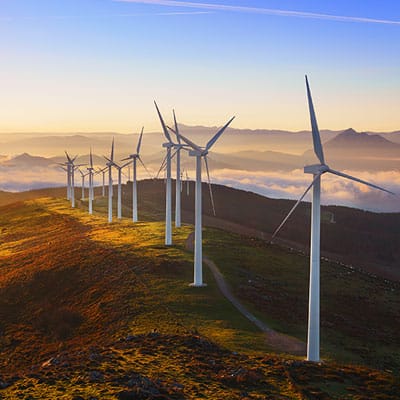S&P Global Commodity Insights offers global energy scenarios, net zero cases, climate-related data, and expert analysis to support corporate strategy, investments, and decision-making in the energy transition. Evaluating business strategies in a changing environment and testing against the very significant fuel type changes in the future under low emissions or net zero cases, is fast becoming a requirement of companies, shareholders, and investors. Therefore, the use of future scenarios is a critical component of the decision-making process. Key questions this service answers:The Energy and Climate Scenarios service is available as part of our Carbon & Scenarios CSM+ service package
Customer Logins
Obtain the data you need to make the most informed decisions by accessing our extensive portfolio of information, analytics, and expertise. Sign in to the product or service center of your choice.
Customer LoginsEnergy and Climate Scenarios
Energy and Climate Scenarios include three bottom-up plausible energy-Integrated forecasts to 2050 and two net-zero cases that are constructed backward starting with a predetermined end point of global net-zero emissions by 2050. The net-zero cases include a “bridge” from the Green Rules scenario that allows for existing energy infrastructure to adjust over the next 5–10 years before embarking on a global greening effort. This transition period is a pragmatic solution to the enormous challenge of completely decarbonizing the global economy over a period of fewer than three decades. See the graphic below for an overview of our scenarios and net-zero cases.
Deliverables include:
- Energy Scenarios and Net-zero cases: data sets, descriptions, and analysis of implications
- Scenarios signposts
- Climate policy country profiles for the G20 countries
- Climate Energy Transition Indices
- Strategic insights and reports
- Analytics dashboards
- APIs
- Workshops and webinars
- Access to experts
S&P Global Commodity Insights Energy and Climate Scenarios and Net-Zero Cases: Overview
Inflections

Fundamental changes across government, markets and society set a sustained long-term energy transition in motion. Once underway, this transition delivers significantly lower global GHG emissions by 2050 and an energy system more and more dependent on clean technology. However, the resurgence in fossil use through the mid-2020s has lasting consequences for the structure of energy markets, and Paris Agreement on climate change goals remain out of reach.
Green Rules

Leaders and governments in key markets are compelled to take momentous steps to address threats to energy, public health, economic wellbeing and climate security. Rapid reduction of dependence on fossil fuels becomes a central element to national security in many key markets. Revolutionary change in energy use, supply and emissions takes place. The world moves toward a much more sustainable energy and emissions pathway, but not one that reaches global net-zero emissions by 2050.
Discord

Geopolitical tensions worsen as key international relationships fracture, and the world becomes increasingly divided and prone to conflict. Persistent instability in politics and markets weakens the resolve — and capabilities — of individuals, countries and companies to address climate change. The energy transition advances in some key countries, but by 2050, global GHG emissions remain at dangerously high levels.
Net-Zero Cases
Accelerated CCS (ACCS)
The net-zero cases ACCS and MTM describe the energy implications of meeting the Paris Climate Accord goal of limiting the average global temperature rise to 1.5 degrees C above preindustrial times by 2100, but via differing technology pathways. Demand for hydrocarbons is materially lower than today in both net-zero cases but with varied implications for different fuel types. Each net-zero case has different outlooks for successful commercialization of CCS. Both reach global net-zero GHG emissions before 2050.
Multitech Mitigation (MTM)
For both ACCS and MTM, the transition to net-zero is an extremely challenging, multidecadal process that requires extraordinary assumptions about change in energy use, technology and policy over the next three decades.
Follow Energy & Natural Resources Research and Analysis
Expert

Rick Vidal
Rick is responsible for coordinating across the energy, economics, chemicals and automotive sectors at S&P Global Commodity Insights to build and continually update the company's long-term energy scenario outlooks, as well as help inform customers of the broad range of dynamics driving the global energy business. He directs research for the S&P Global Commodity Insights Energy and Climate Scenarios service and is a principal thought leader in S&P Global Commodity Insights ongoing scenario analysis and development. Before joining S&P Global Commodity Insights , Rick worked with Sandia National Laboratories, performing comparative studies of international energy policies and technology programs.Rick holds a Bachelor of Arts from Boston University and an Master of Arts from the Fletcher School of Law and Diplomacy at Tufts University in the United States.

Paul McConnell
Paul is an Executive Director with the Energy and Climate Scenarios team at S&P Global Commodity Insights. His work covers energy and carbon markets, long-term decarbonisation trends, climate policy, and strategic responses to climate change and the energy transition. He is highly experienced in both development of energy and climate scenarios, as well as their application in assessing climate-related risk and opportunity for organisations across the oil & gas, power, industry and financial sectors. Prior to S&P Global Commodity Insights, Paul led the climate transition risk team for a leading global sustainability consultancy. He also has many years' experience working in research roles across the energy industry.Paul holds an MSc in Global Environmental Change and International Policy from Imperial College, London.
{}
{"items" : [
{"name":"facts","url":"https://cdn.ihsmarkit.com/www/pdf/0323/Energy-Climate-and-Scenarios-Factsheet.pdf","enabled":true,"desc":"Download product information","alt":"Download product information","mobdesc":"PDF","mobmsg":"Download product information"},{"name":"login","url":"https://products.markit.com/home/login.jsp","enabled":true,"desc":"Product Login for existing customers","alt":"Login","large":true,"mobdesc":"Login","mobmsg":"Product Login for existing customers"},{"name":"sales","override":"","number":"[num]","enabled":true,"desc":"Call Sales [num]","proddesc":"[num]","alt":"Call Sales</br>[num]","mobdesc":"Sales","mobmsg":"Call Sales: [num]"}, {"name":"share","enabled":true,"desc":"<strong>Share</strong>","mobdesc":"Share","options":[ {"name":"facebook","url":"https://www.facebook.com/sharer.php?u=http%3a%2f%2fstage.www.spglobal.com%2fcommodityinsights%2fen%2fci%2fproducts%2fenergy-climate-scenarios.html","enabled":true},{"name":"twitter","url":"https://twitter.com/intent/tweet?url=http%3a%2f%2fstage.www.spglobal.com%2fcommodityinsights%2fen%2fci%2fproducts%2fenergy-climate-scenarios.html&text=Energy+and+Climate+Scenarios+%7c+S%26P+Global","enabled":true},{"name":"linkedin","url":"https://www.linkedin.com/sharing/share-offsite/?url=http%3a%2f%2fstage.www.spglobal.com%2fcommodityinsights%2fen%2fci%2fproducts%2fenergy-climate-scenarios.html","enabled":true},{"name":"email","url":"?subject=Energy and Climate Scenarios | S&P Global&body=http%3a%2f%2fstage.www.spglobal.com%2fcommodityinsights%2fen%2fci%2fproducts%2fenergy-climate-scenarios.html","enabled":true},{"name":"whatsapp","url":"https://api.whatsapp.com/send?text=Energy+and+Climate+Scenarios+%7c+S%26P+Global http%3a%2f%2fstage.www.spglobal.com%2fcommodityinsights%2fen%2fci%2fproducts%2fenergy-climate-scenarios.html","enabled":true}]}, {"name":"rtt","enabled":true,"mobdesc":"Top"}
]}






